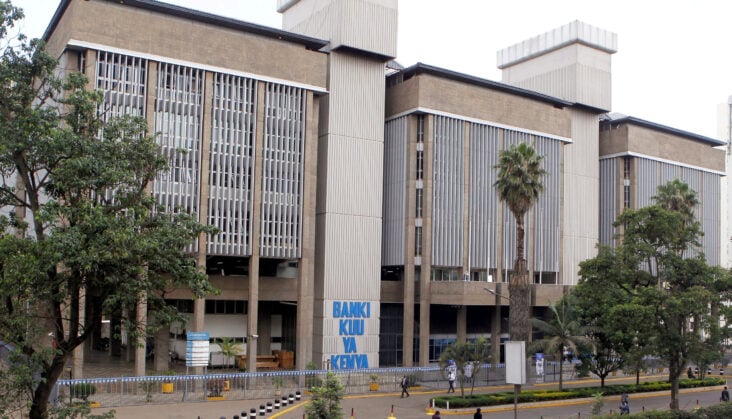Kenya’s banking sector, once a dominant force in holding government domestic debt, is steadily relinquishing its grip. According to the latest figures from the Central Bank of Kenya (CBK), the share of government debt held by banking institutions has dropped below 45% for the first time in recent years, signaling a potential shift in the country’s debt market dynamics.
As of October 2, 2024, banks held 44.40% of Kenya’s total domestic debt, a significant decline from the 46.84% share reported at the end of December 2022. This continued downward trajectory marks a notable change in the role of banks as primary financiers of the government’s borrowing needs.
| Holder | 30-Dec-22 | 30-Jun-23 | 29-Dec-23 | 28-Jun-24 | 31-Jul-24 | 28-Aug-24 | 25-Sep-24 | 2-Oct-24 |
|---|---|---|---|---|---|---|---|---|
| Banking Institutions | 46.84% | 46.17% | 46.07% | 45.12% | 45.12% | 44.81% | 45.00% | 44.40% |
| Insurance Companies | 7.37% | 7.31% | 7.23% | 7.23% | 7.21% | 7.20% | 7.15% | 7.22% |
| Parastatals | 6.06% | 5.98% | 5.47% | 5.13% | 5.08% | 5.34% | 5.30% | 5.35% |
| Pension Funds | 33.31% | 33.42% | 29.93% | 29.60% | 29.39% | 29.14% | 29.12% | 29.43% |
| Other Investors | 6.43% | 7.13% | 11.30% | 12.92% | 13.19% | 13.50% | 13.43% | 13.59% |
| Total | 100.00% | 100.00% | 100.00% | 100.00% | 100.00% | 100.00% | 100.00% | 100.00% |
The figures show a persistent reduction in the share of domestic debt held by banks over the past two years. By June 2023, banks’ share had fallen to 46.17%, and the trend has continued, with the latest numbers reflecting a new low. Analysts believe this decline points to a combination of factors, including regulatory pressures, liquidity challenges, and the pursuit of higher returns in alternative investments.
As banks reduce their exposure to domestic debt, other investors have stepped in to fill the void. The data shows a surge in the share of government debt held by “Other Investors,” a category that includes mutual funds, private equity, and foreign investors. This group has increased its stake from 6.43% in December 2022 to an impressive 13.59% by October 2024.
The rise of these alternative investors highlights a changing landscape in Kenya’s domestic debt market. With banks retreating, the government is increasingly reliant on a more diverse set of lenders to fund its borrowing needs.
While banks are pulling back, Kenya’s pension funds have remained consistent in their support of government borrowing. As of October 2024, pension funds accounted for 29.43% of domestic debt holdings, down slightly from their peak of 33.42% in June 2023 but still a significant share. Pension funds are seen as stable long-term investors, driven by the need to generate consistent returns for retirees.
Insurance companies, too, have maintained a relatively stable share of domestic debt holdings, hovering around 7.2%. As of October 2024, they held 7.22% of the total, a slight increase from the previous month’s figure of 7.15%. Their steady involvement in government securities reflects the need to balance their portfolios with low-risk assets.
The shift in the makeup of debt holders comes at a crucial time for the Kenyan government, which continues to rely heavily on domestic borrowing to finance its budget deficits. The diminishing role of banks could have significant implications for the cost of borrowing and the overall stability of the financial system.
As banks reduce their exposure to government securities, the Treasury may need to offer higher yields to attract other investors, potentially raising the cost of borrowing. This could pose a challenge as the government grapples with rising debt levels and growing interest payments, which currently account for nearly 40% of total revenue.
The diversification of debt holders could also introduce volatility, particularly if foreign investors or private equity funds seek to pull out during periods of economic uncertainty. Unlike domestic banks and pension funds, these new players may be less willing to hold Kenyan debt during downturns, potentially creating liquidity issues in the market.
The declining share of domestic debt held by banks marks a turning point in Kenya’s financial landscape. While the rise of alternative investors and the continued involvement of pension funds provide some stability, the government faces new challenges in managing its debt portfolio.

















